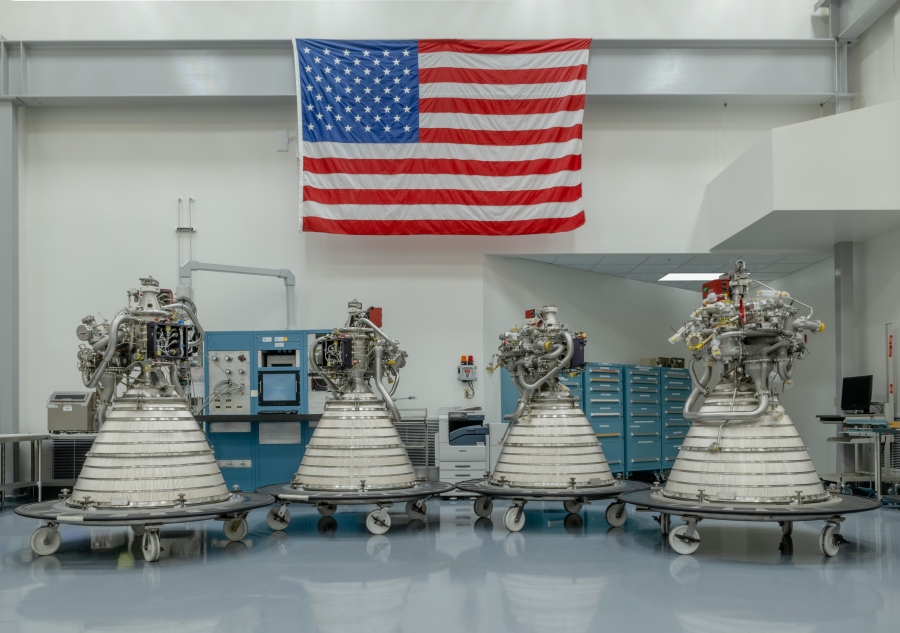Jeff Bezos' Blue Origin space start-up aims to have a new rocket engine ready for installation aboard United Launch Alliance's new Vulcan rocket by 2019. Rival Aerojet Rocketdyne (AJRD +0.00%), meanwhile, is betting on Blue Origin to fail -- or at least encounter enough problems in developing the engine to give Aerojet a chance to catch up with its own AR1 engine, due out no sooner than 2020.
Well, bad news for Aerojet Rocketdyne: It turns out, Blue Origin has its first BE-4 rocket engine fully assembled and ready for testing -- and it's pushing two more out the door as we speak.

Blue Origin's BE-4 engine is ready to rocket and roll. Image source: Blue Origin.
No assembly required
Bezos boasted of his accomplishment on Twitter earlier this week, posting photos (such as the one above) showing a shiny new BE-4 rocket engine, all assembled and ready to burn. Current plans are for Blue Origin to get the rocket flight-qualified before year-end, preparatory to taking a first test flight scheduled two years hence.
The news gives Blue Origin a big boost of confidence that it will succeed in winning the contract to outfit future rockets for Boeing (BA 0.30%) and Lockheed Martin's (LMT +0.28%) United Launch Alliance. That accomplished, Blue Origin will shut out Aerojet and secure for itself a revenue stream it can use to fund further developments in its space program.
And that's not all BE-4 means for Blue Origin.
A new space star rises
Blue Origin had a lot of news to report this week. On Tuesday, the company announced it has signed its first customer for a commercial satellite launch. European satcom Eutelsat aims to become Blue Origin's inaugural customer five years from now, utilizing a Blue Origin New Glenn large rocket to launch one of its comm-sats into high geostationary orbit. Then, just a day later, Blue Origin announced its second customer, OneWeb -- soon to be merged into Intelsat.
And here's the key: New Glenn will itself rely on no fewer than seven BE-4 engines to power it -- so getting the first BE-4 built and ready for testing on time was kind of a big deal, if Blue Origin wants to have a rocket ready to launch all of these new customers' satellites on time.
What it means for investors
Now here's the upshot for investors: Life just got more complicated for Boeing and Lockheed Martin. On one hand, these companies are relying on Blue Origin to free them from the need to buy Russian rocket engines to power their space launches today. On the other hand, in buying engines from Blue Origin, they could end up financing a new rival's drive to compete with them on space launch a few years from now.
(Side note: Did you hear how Blue Origin is planning to recover its reusable first stages on the New Glenn? Apparently, the plan is to land them on mobile barges at sea -- just like you-know-who does.)








